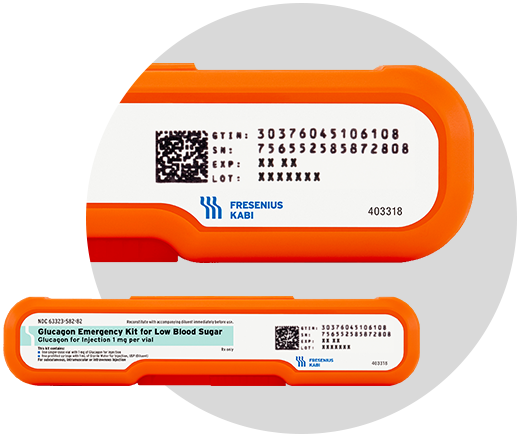INFORMATION FOR CAREGIVERS
Be Prepared
In the event of a severe hypoglycemic episode, you will need to be confident and act quickly. It is important that you:
- Read and understand the Instructions for Use in the package insert before an episode occurs.
- Learn how to use the Glucagon Emergency Kit. Know where the kit is kept.
- Practice giving the injection. This is important so you will be prepared in an emergency.
- If you have questions, talk to the doctor or pharmacist.
- Ask the healthcare provider for multiple prescriptions — one for home and one for on-the-go.
- Check the expiration date. Do not use expired glucagon.
If the person you are caring for shows signs of very low blood sugar, use the Glucagon Emergency Kit immediately. After administration, call for emergency medical attention.

Symptoms of severe hypoglycemia include:
- Confusion
- Unconsciousness
- Seizures
You should administer glucagon if your patient is:
- unconscious, or
- having a seizure, or
- confused and unable to eat sugar or a sugar-sweetened product
Suggestions for before & after administration:
- Do not mix the glucagon until you are ready to use it.
- To mix, combine the contents of the syringe with glucagon in the vial before giving the injection (See Instructions for Use).
- Turn the person on their side; this will prevent choking.
- Dispose of any leftover mixed glucagon.
Hypoglycemia may reoccur after receiving the glucagon injection.
Glucagon is not effective if taken by mouth.

